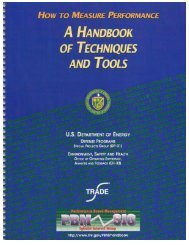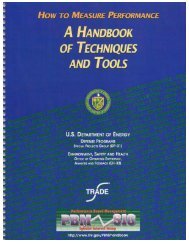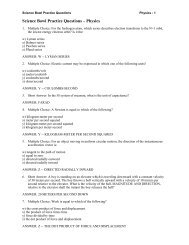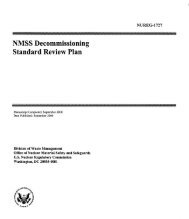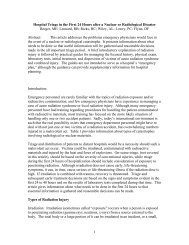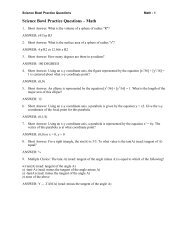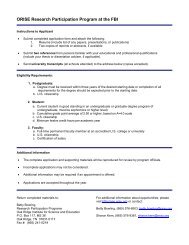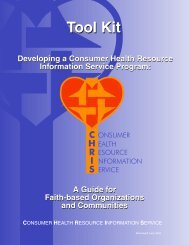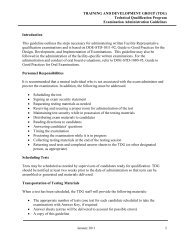Internal and external factors that encourage or discourage
Internal and external factors that encourage or discourage
Internal and external factors that encourage or discourage
Create successful ePaper yourself
Turn your PDF publications into a flip-book with our unique Google optimized e-Paper software.
"Perceived efficacy can affect. . .whether people even consider changing their health habits, how<br />
hard they try should they choose to do so, how much they change, <strong>and</strong> how well they maintain the<br />
changes they have achieved." (B<strong>and</strong>ura, 1990 [1])<br />
"In these interpersonal (pressures <strong>and</strong> sentiments) the sway of coercive power, allurements, desire<br />
f<strong>or</strong> social acceptance, social pressures, situational constraints, <strong>and</strong> fear of rejection <strong>and</strong> personal<br />
embarrassment can override the influence of the best of inf<strong>or</strong>med judgment." (B<strong>and</strong>ura, 1990 [1])<br />
"Misappraisals of riskiness of one's sexual practices tend to be associated with underestimation of<br />
personal susceptibility to infection." (B<strong>and</strong>ura, 1990 [1])<br />
"People's belief <strong>that</strong> they can motivate themselves <strong>and</strong> regulate their own behavi<strong>or</strong> plays a crucial<br />
role in whether they even consider altering habits detrimental to health." (B<strong>and</strong>ura, 1990 [1])<br />
"Perceived self-efficacy emerged as the best predict<strong>or</strong> of sexual risk-taking behavi<strong>or</strong>." (B<strong>and</strong>ura,<br />
1990 [1])<br />
"What people need is sound inf<strong>or</strong>mation.., guidance on how to regulate their behavi<strong>or</strong>, <strong>and</strong> firm<br />
belief in their personal efficacy to turn concerns into effective preventive actions." (B<strong>and</strong>ura, 1990 [1])<br />
"Patients' perceived efficacy <strong>that</strong> they could stick to the required preventive behavi<strong>or</strong> was a good<br />
predict<strong>or</strong> of whether they adopted the preventive practices." (B<strong>and</strong>ura, 1990 [111)<br />
"The stronger the perceived self-efficacy, the m<strong>or</strong>e likely people are to adopt the recommended<br />
practices." (B<strong>and</strong>ura, 1990 [1])<br />
[1])<br />
"Success is usually achieved through renewed eff<strong>or</strong>t following failed attempts." (B<strong>and</strong>ura, 1990<br />
"Human competency requires not only skills, but also self-belief in one's capability to use those<br />
skills well." (B<strong>and</strong>ura, 1990 [1])<br />
"It is resiliency in perceived self-efficacy <strong>that</strong> counts in maintenance of changes in health habits.<br />
The higher the perceived self-efficacy, the greater is the success in maintenance of health-promoting<br />
behavi<strong>or</strong>." (B<strong>and</strong>ura, 1990 [1])<br />
"People effect self-directed change when they underst<strong>and</strong> how personal habits threaten their wellbeing,<br />
are taught how to modify them, <strong>and</strong> believe in their capabilities to marshal the eff<strong>or</strong>t <strong>and</strong> resources<br />
needed to exercise control." (B<strong>and</strong>ura, 1990 [1])<br />
"Neither intention n<strong>or</strong> desire alone has much effect (on self-regulation) if people lack the<br />
capability f<strong>or</strong> exercising influence over their own motivation <strong>and</strong> behavi<strong>or</strong>." (B<strong>and</strong>ura, 1991 [2])<br />
5



